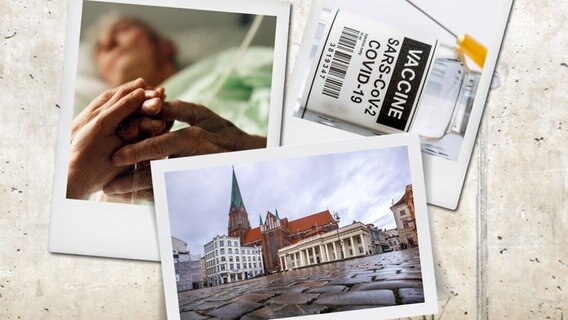Status: 02/28/2021 3:30 p.m.
In the corona pandemic, the relationship to science is being re-measured. Virologists are more popular than ever. This is also because we knew little about the virus. Scientists in MV have also learned a lot over the past year.
The Rostock tropical medicine specialist Prof. Emil Reisinger advised the state government on the pandemic.
–
A virus has been shaping our entire lives for a year and with it words that have never been used or barely used to date such as incidences, quarantine, intensive care bed occupancy or AHA rules. At the end of December 2019, reports of a mysterious lung disease appeared sporadically in the central Chinese metropolis of Wuhan. The symptoms: mainly fever and breathing problems. It is still unclear whether the disease is transmitted from person to person and how contagious it is. At the beginning of January 2020, the reports about the illnesses pile up. In Wuhan, central China, 50 infected people are already being treated in the hospital. There are suspicions that the trigger is a novel coronavirus. The Huanan market in Wuhan quickly comes into focus. Wild animals are also sold here. It could be the origin of the disease.
Scientists initially feel largely in the dark
There are also initial suspected cases in South Korea and Singapore. In Germany, the Robert Koch Institute (RKI) estimated the risk of becoming infected with the novel coronavirus as “very low” in mid-January. The head of tropical medicine and infectious diseases at the Rostock University Medical Center, Prof. Emil Reisinger, is also observing the developments with his colleagues. “We can currently watch the situation in Germany in a relaxed manner,” said Reisinger on February 21, 2020 in NDR Nordmagazin. The virus does not appear to be very pathogenic and deadly like the SARS virus or the MERS virus, and the processes described so far are easier. “If a health system can cope with such a situation, it will be the German health system,” says Reisinger. The virologist Christian Drosten assumes that virus mutations arise so that it is transmitted from person to person. “Sometimes it is the case that a virus like this tends to weaken in this process, but is nevertheless more easily transmitted,” explains Drosten at the end of January 2020.
Northern Italy is hit by a wave of infections
Just a few days later, on January 27, 2020, there was the first official Covid 19 case in the Federal Republic – a Webasto employee from the Bavarian district of Starnberg was infected. Three days later, the Italian authorities confirmed the first Corona case in Rome. From then on, Covid-19 rolled across northern Italy like a wave. The city of Bergamo is hit particularly hard. The images of military vehicles transporting coffins go around the world. With 3,400 people who died from or with Corona, the Italians have more deaths than the Chinese in mid-March. The country will have one of the worst pandemic courses in Europe. On March 8, the first German dies of the consequences of Covid-19. Only a few days later the first test centers open in Greifswald, Schwerin and Rostock.
The first and second waves
The RKI describes the period from January to mid-June 2020 as the “first wave” with more than 190,000 infected people. Today there are almost 2.5 million so-called “laboratory-confirmed Covid-19 cases”. In autumn, the Sars-CoV-2 infection numbers climb again. A second, much larger wave is rolling in. The 46-year-old bio-computer scientist Prof. Lars Kaderali from the University of Greifswald simulates the course of the pandemic right from the start. He also advises the state government of Mecklenburg-Western Pomerania. From Kaderali’s point of view, the second wave should have reacted more quickly and more consistently – similar to the first wave: “The reaction was very early and the numbers did not go up that much and therefore came down again quickly. And that was that too Reason why we actually had such a relaxed summer, “said Kaderali.
Further information

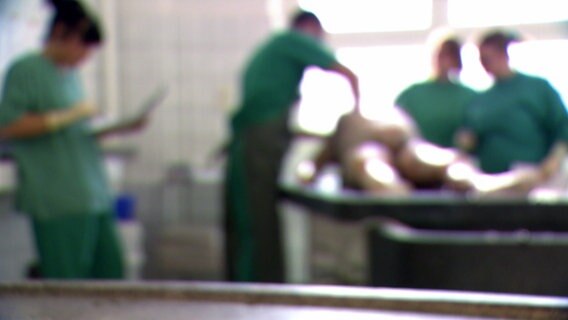
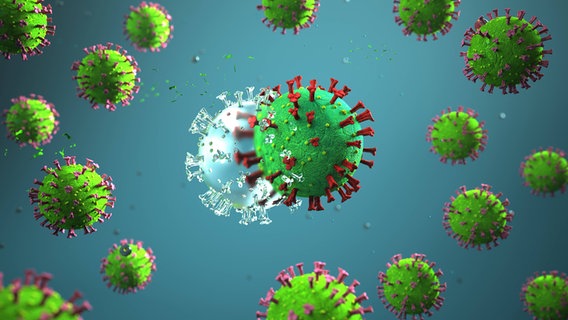
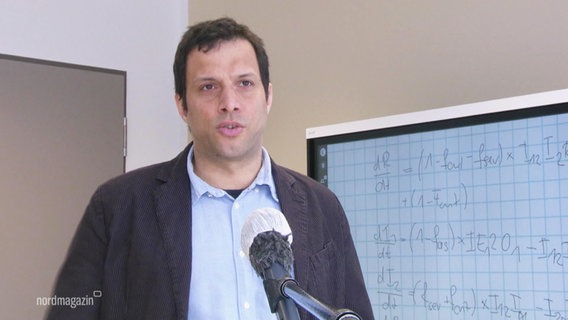 –
–
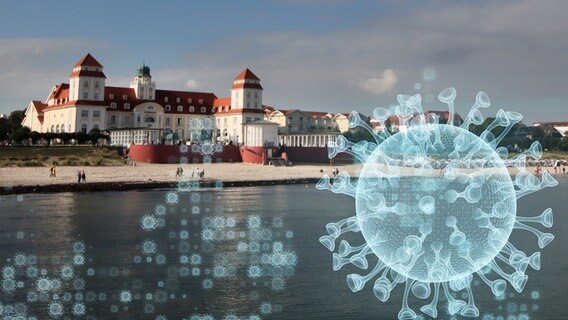 –
–